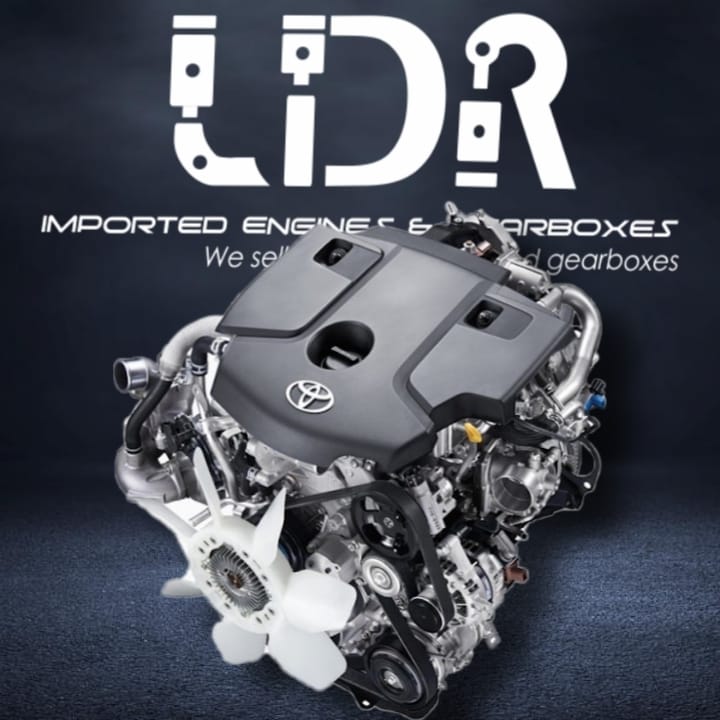Discover Reliable Toyota Tazz Engine for Sale: Auto Parts Depot
Discover Reliable Toyota Tazz Engine for Sale: Auto Parts Depot
Blog Article
Engine Purchasing Professional Tips on Picking the Right Engine for Your Details Needs
Selecting the best engine for your particular requirements includes an intricate interaction of factors that surpass mere horsepower figures. From power output to fuel efficiency, the decision-making process can be daunting. Understanding the nuances of engine types, sizes, and their compatibility with your vehicle is important. Nevertheless, there are experienced pointers that can aid browse this surface with confidence. By delving into the complexities of power versus effectiveness, assessing fuel ratings, and budgeting for lasting prices, one can genuinely maximize their engine choice.
Power Vs. Effectiveness: Finding the Equilibrium

When picking an engine, it is critical to strike an equilibrium between power and efficiency to meet your details demands successfully. Power refers to the engine's ability to generate energy for propulsion, determining factors like velocity, pulling capability, and overall efficiency (Toyota Tazz Engine For Sale). On the other hand, efficiency connects to exactly how well the engine utilizes gas to produce power, impacting variables such as gas economic climate and ecological kindness
Achieving the appropriate balance in between power and effectiveness is vital because an engine that is also powerful might consume too much fuel, leading to greater operating expense and unnecessary stress on the setting. On the other hand, an engine that focuses on effectiveness over power might result in slow-moving performance, particularly sought after circumstances like towing hefty loads or driving uphill.
To make an educated decision, think about factors such as your normal driving conditions, the designated use the car, and your individual preferences. By examining your needs and concerns, you can pick an engine that strikes the perfect balance in between power and efficiency, making sure optimum performance while lessening ecological effect and operating expense.
Understanding Engine Dimension and Type

Common engine types consist of inline engines, V engines, and rotating engines, each with its one-of-a-kind benefits and disadvantages. Comprehending the interplay between engine dimension and kind is essential in picking an engine that lines up with your certain requirements and concerns, whether it be power, efficiency, or a balance of both.
Consider Your Vehicle's Needs
If you are looking for an engine for a sturdy vehicle that will be utilized for towing, you will certainly require an effective engine with high torque capabilities. On the other hand, if you are choosing an engine for a portable vehicle mostly made use of for city commuting, fuel effectiveness might be a more crucial aspect to take into consideration.

Evaluating Gas Efficiency Scores
Assessing gas effectiveness scores is an essential aspect of selecting the appropriate engine for your lorry, ensuring price financial savings and ecological sustainability. Gas effectiveness scores, usually measured in miles per gallon (MPG) for gasoline engines or kilowatt-hours per 100 miles (kWh/100 miles) for electrical engines, suggest exactly how far a lorry can take a trip on a details quantity of fuel or electrical power. Higher MPG or reduced kWh/100 miles values signify extra reliable engines, equating to reduced gas expenses and lower carbon exhausts.
When examining fuel performance scores, consider your driving requirements and habits. An extremely fuel-efficient engine can result in significant financial savings over time if you commute long distances daily. In addition, compare different engine alternatives within the exact same lorry class to recognize the most cost-effective selection. Elements such as engine dimension, weight, aerodynamics, and crossbreed or electric capacities can all influence gas efficiency.
Budgeting for Long-Term Expenses
Purposefully preparing for lasting expenses is essential when choosing an engine, making certain financial sustainability over the automobile's life-span. While the initial acquisition rate of an engine is a considerable variable, it is essential to think about the long-lasting prices connected with maintenance, repair services, and gas consumption. Opting for a much more fuel-efficient engine may have a greater ahead of time expense yet can cause substantial financial savings in time. Normal maintenance, such as oil modifications, filter substitutes, and tune-ups, is important to keep the engine running smoothly and efficiently, decreasing the danger of costly repair work down the line.
Additionally, researching the schedule and expense of replacement parts for the selected engine is crucial in budget preparation. By thoroughly budgeting for these long-term expenditures and factoring them right into the decision-making procedure, people can select an engine that not just meets their instant demands however additionally remains cost-efficient throughout its lifespan.
Verdict
In conclusion, picking the appropriate link engine for your specific needs calls for balancing power and effectiveness, understanding engine dimension and kind, considering your automobile's needs, assessing gas efficiency scores, and budgeting for lasting expenses. By carefully taking into consideration these aspects, you can make certain that you select an engine that meets your demands and supplies optimal performance for your car.
To further refine the selection process of an engine that strikes the optimal balance between power and effectiveness, it is essential to delve into the intricacies of understanding engine size and type. Engine size refers to the complete quantity of air and gas that can be pressed with the engine cyndrical tubes. Typical engine kinds include inline engines, V engines, and rotary engines, each with its distinct benefits and disadvantages. Comprehending the interplay between engine size and kind is vital in picking an engine that straightens with your details demands and top priorities, whether it be power, performance, or an equilibrium of both.
Gas effectiveness scores, normally determined in miles per gallon (MPG) for gasoline engines or kilowatt-hours per 100 miles (kWh/100 miles) for electrical engines, show exactly how far a car can travel on a particular quantity of gas or electrical energy.
Report this page